Netflix 'You Are What You Eat' - Culling the human race one vegetable at a time
Culling the human race for future worship and servitude
When people cull animals, they kill them, especially the weaker members of a particular group of them, in order to reduce or limit their number: - Cambridge Dictionary
As I stomached my way through the Netflix documentary series, "You Are What You Eat", I found myself experiencing an array of emotions. While the hit piece on meat confirmed what I've believed for years —there is a supernaturally led effort to cull the human race— I found myself angered, bewildered and also full of laughter because the documentary was so utterly ridiculous.
I originally told myself I was only going to watch the first episode because within 15 minutes I was so overcome with "this has got to be the dumbest clown #$%! I've ever seen in my natural Black life", that I wasn't going to grant Netflix the satisfaction of an extra watch. But then I remembered that my wife had recently received a text message about this show from one of her friends and like many people had bought into what Netflix was selling. I realized I had to get over my own personal feelings and serve my fellow human brothers and sisters. Not gonna lie though. It was painful. Boy did I suffer through. I'd rather chew off my own kneecaps and be forced to run through hot broken glass barefoot at gun point before watching it a second time through.
I found it painful to watch not just because it was awful, but because of the existential implications its agenda has on the human race. If you believe what's happening to the food industry is merely all about greedy corporations, I'm afraid you're missing the point of it all and the giants have already deceived you. Hopefully I can shed a bit of light in this article as I tease out what's taking place. I won't address at length every point made in the series because this article would become a book but I'll try to hit the big ones. However, all of my work is connected around a central theme so I'd encourage you to check out my earlier articles. Let's begin.
The agenda
The "You Are What You Eat" study was a "scientific" experiment led by Stanford Medicine researchers. The goal was to determine if a vegan diet was healthier than an omnivore diet by studying 22 pairs of identical twins —with each pair being provided opposing diets over the course of eight weeks.
As with any study it's important to research who is providing the funding so you can better understand potential unhealthy biases or conflicts of interest. This study didn't disappoint as the documentary kept the motives of one the funders hidden from the public. The study was funded by several players, one being the non-profit, Vogt Foundation, a private organization that supports Oceanic Preservation Society.
According to the LinkedIn profile of Charley Vogt —Secretary Treasurer— his goal in supporting the foundation is:
“To promote the mission of the Vogt Foundation to assist plant-based development and protect all animals while supporting organizations that produce animal alternative products or protect animals.”
Oddly, this organization appears to have plummeted from almost $18 million in 2018 to just over $230,000 in 2022 in revenue. While contributions to the organization have dropped substantially the foundation has managed to pile up assets to the tune of $35 million. Maybe someone could do a bit more digging on what this organization is about, its assets, and how wide its tentacles actually reach.
The additional funders of the study were Stanford Clinical and Translational Science Award program and the National Heart, Lung and Blood Institute. Again, this information should've been made known to the audience. I don’t believe the failure to divulge this information was an accident nor were the makers of this documentary concerned with being found to be pushing an agenda. That’s not how psyops work —which is what I believe this documentary to be. I believe the creators and funders of this documentary were going after quantity, not quality. They knew most people wouldn't research the information provided and the minds of these individuals would be extremely impressionable.
Repeated information is often perceived as more truthful than new information. This finding is known as the illusory truth effect, and it is typically thought to occur because repetition increases processing fluency. Because fluency and truth are frequently correlated in the real world, people learn to use processing fluency as a marker for truthfulness. 1
This is simply programming of the mind by indoctrination. Eventually lies appear to be truth when repeated enough. This effect plays a significant role in promoting propaganda through media, advertising and politics. So when you see the repetition of false information, realize it's not always due to ignorance but very well may be part of an agenda to subvert the logic and reasoning faculties of the brain to imprint an idea.
Now that we understand the existing bias and very overt agenda —knowing the war on meat is no longer hidden or of conspiratorial fodder— we can dig into the actual study.
Why vegetables are gross
For those who've been following my work, my own bias is pretty clear. I started on the carnivore diet last spring as a means to attack an underlying, unknown illness I had been facing since being deployed to Kuwait in 1997. I recently found out that many of us veterans who'd been deployed at that time to Southwest Asia had been exposed to biotoxins —confirmed by the United States Government. I'm currently undergoing treatment to finally get healed.
However, at the start of my carnivore journey I learned that what I always believed was healthy, was in fact not. Sure, most people are aware that processed foods and seed oils are bad for you. I'd consider those items the low hanging fruit that need to be removed to pave the way for a healthier mind and body. But what I did not know and something that many people today do not know, is the danger of plants. These are the "whole foods" we're all told are healthy and should eat plenty of.
For decades those in charge of dietary programming have been convincing people that plants are healthy and is the best species appropriate food. It wasn't until I came across Dr. Anthony Chaffee's YouTube video, Plants are Trying to Kill You about a year ago that I realized how damaging plants can be. While the title of the video is a bit over the top —Chaffee admits this himself— the fact remains that all plants produce phytochemicals as a means to defend themselves. These chemical compounds act as natural pesticides and fungicides and also help stave off bacteria and viruses. This is all Biology 101. There's no conspiracy. This is how plants operate and is their only defense mechanism besides the occasional thorns that some produce. While much of the conversation surrounding plants often concern its nutrients, what isn't talked about are the antinutrients and the inability to unlock certain nutrients from the plant’s death grip so they can be made bioavailable to humans. Plants —which we like to call vegetables— contain lectins, cyanogenic glycosides, mycotoxins, oxalates, solanines, phytic acid, and other chemicals that unleash an incredible amount of damage to the human body. And the "babies" —the seeds, stones and nuts— are often the worst offenders which is why they're often incredibly bitter or downright nasty, causing you to spit them out. Raw cashews can kill you. Brussel sprouts and mushrooms have over 100 known carcinogens. You've probably seen cassavas based foods in health food stores lately in the form of chips. But Cassavas contain cyanogenic glycoside. The existence of this compound means that when a plant, seed or nut is chewed it has the ability to release hydrogen cyanide. Potatoes, spinach and beets are extremely high in oxalates and can lead to kidney stones. These oxalates are akin to eating microscopic shards of glass that wreak havoc on your organs. And this isn't new information. This isn't tin foil hat madness. It's information that has been swept under the rug.
“The story of oxalate overload gets even more surprising when we look at how it vanished as a topic of inquiry from medicine and nutrition, even as the body of scientific evidence about the diversity and severity of oxalate’s effects on our health continues to grow. In 1842, the nascent oxalic diathesis emerged as a medical condition associated with diet and involving elevated oxalate in urine. (Diathesis refers to a constitutional tendency to a disorder or set of disorders.) Affected patients suffer from digestive problems; arthritis; back pain; anxiety, nervousness, despondency, or other mental distress; fatigue; soft bones; boils; rough and scaly skin; cardiac symptoms; pain or heaviness in the loins; urinary tract stones or distress, semen in the urine, and cloudy urine. Urinary expert Golding Bird and a handful of his colleagues from the tea-drinking British Isles believed that excessive oxalate in the body was bad for the “general health.” - Toxic Superfoods - Sally K. Norton, MPH
As a Bona fide member of the "oxalate dumping" community —the body's painful attempt to release stored oxalates once you stop eating them— and as someone that used to eat a heavy, whole foods diet rife with oxalate containing foods, I can tell you unequivocally that this nightmare is as real as the air you're breathing. Again, this isn't new information as even the World Health Organization keeps a list of the naturally occurring plant toxins. And while we can eat plants that doesn't mean we should make them our primary food source. Plants have always been a food of scarcity when the land did not possess the richness we call fat. It is fat that enables the human body to thrive, not just survive. The fact that we can eat plants has lead many to believe humans are omnivores, despite our physiology leaning more towards being high trophic level carnivores. This is based on evidence from studies such as the one conducted in 2021 that attempted to reconstruct the diet of stone-age humans. This, coupled with the fact that the wide assortments of vegetables one can find in the produce section of a grocery store is a recent phenomenon due to global trade, supports the idea humans have not always lived on plant food. To say otherwise is to be factually incorrect. The "science" and what we know concerning the advancement of agriculture through the course of human history doesn't support it. Fruits are another story as they have minimal and oftentimes zero toxins. Why? This is the part of the plant humans are supposed to eat. The rest is reserved for animals comprised with a digestive system capable of unlocking nutrients from toxic plants.
I hope you can see why all of this is important. Many people have become disillusioned into thinking plants —with all of their bright colors yet inability to be eaten without much preparation lest one gags— is somehow good for us. They aren't. There’s a reason why kids turn their face up at vegetables and perk up for bacon. And this Netflix documentary is simply trying to convince you to eat more poison.
Backed by science...or something
High Cholesterol
The documentary does a great job of throwing out the word "science" as if merely mentioning it makes their claims true. They introduced us to fancy titled individuals such as a “neuroscientist” to bolster their claims and convince the audience as we live in a society that respects labels more than wisdom. However, what was not provided in the 4-part series was any actual scientific data. Why? Because the arguments made weren't supported by any. It was the quintessential smoke and mirrors scheme.
The series opens with the very tired and non-proven claim that saturated fat —chiefly from animal products— are bad for you and raise blood cholesterol while clogging your arteries.
I wrote an article on this specific topic which highlights where this falsehood started —Ancel Keys in 1952— and how there are zero, I repeat zero, causal studies dating back to the creation of the diet-heart hypothesis created by Keys, that prove saturated fat is bad for you, let alone clogs your arteries. Keys had an hypothesis and it became popular with the American Heart Association and doctors across America despite lack of evidence for a causal relationship between saturated fat and atherosclerosis. Several studies were launched to investigate Key's claims starting in the 60s —which all failed to prove Key's hypothesis— but by then it was too late. This is why even today, when medical practitioners and nutritionists talk about saturated fat and heart disease they use terms such as "maybe, possibly, correlation, could lead to, may put you at risk, potential higher risk" and so on. Because it's never been proven. It's all a farce. But if you listen to the general public, they speak with absolutism as if it’s been proven. This is the illusory truth effect at work.
As I mentioned in my earlier article, "Meat keeps you alive; which is why you're told to avoid it", we now know the story of cholesterol is much more nuanced. High LDL —known as the bad cholesterol— can not be looked at in isolation as a sign that someone is at risk for heart disease. In a recent study known as the Lean Mass Hyper Responder Study, led by Dave Feldman, researchers have learned that while on a ketogenic diet, a specific subset of healthy people —with a certain phenotype— experienced a rapid increase in LDL. Yet, by simply adding a small amount of carbohydrates you can cause LDL to drop. You heard me correct. People who were not at risk for heart disease and were metabolically healthy, experienced an increase in LDL simply by going keto, yet this did not put them at risk for heart disease. Not only did the participants have high LDL, they also had high HDL —known as the good cholesterol— while maintaining low triglycerides. These markers are specifically associated with lower cardiovascular risk, not higher. You can watch the presentation here. But it gets even better.
Remember the term, "Lean Mass Hyper Responder"? This past December Dr. Matthew Budoff presented the results from a Keto Trial Match Analysis: The KETO (LMHRstudy) vs Control (MiHeart) cohorts. The objective was to see if elevated LDL increased arterial plaque on the keto subjects who had elevated LDL. The results? There were no significant differences in coronary plaque. You can find the study results and presentation here. The reason why this false idea of high LDL —on its own— means danger is due to the billion dollar statin industry peddled by big pharma. But this lie is being slowly dismantled by real scientists doing real work. There's still much work to be done but this is all very promising.
Dairy and addiction
While Netflix did correctly speak to the existence of Beta-casomorphin (BCM-7 peptide) which is an opioid peptide derived from the digestion of milk casein, they once again left out other major facts. So, is milk really as dangerous as they claim?
A study from 2007 concluded that when digested RAW, A1 milk produces only traces of this peptide while A2 milk produces none. But once the RAW milk was pasteurized the trace levels in A1 were found to have quadrupled. So it appears pasteurization of milk is the chief problem. Milk isn't meant to be consumed this way.
An updated study —A2 Milk and BCM-7 Peptide as Emerging Parameters of Milk Quality— was published in 2022. From the abstract:
In most of the commercially available milk containing A1 or A1/A2 β-CN variants, the β-casomorphin-7 peptide (BCM-7) is released upon digestion and during cheese manufacturing/ripening, while this does not happen with A2 milk. BCM-7 is a known μ-opioid receptor agonist that may influence the gastro-intestinal physiology directly and may also exert effects elsewhere in the body, such as on the cardiovascular, neurological and endocrine systems. The present article is aimed at a revision of prior review papers on the topic, with a focus on the impact of ingestion of A1 β-CN milk and A2 β-CN milk on any health-related outcomes and on the impact of A1 or A2 β-CN variant on technological properties of cows' milk. When systematic reviews were considered, it was possible to conclude that A2 β-CN exerts beneficial effects at the gastrointestinal level compared with A1 β-CN, but that there is no evidence of A1 β-CN having negative effects on human health.
So according to actual studies, the existence of casomorphin does not appear to be an issue at all. If anything, it seems milk may be problematic when it is pasteurized.
I won't spend a lot of time on this particular topic, but I do want to note that the chief issue most people have with dairy is the fact that it is pasteurized. This process kills off the beneficial bacteria the gut would normally utilize in order to digest milk properly. Heating up RAW milk changes its properties which wreaks havoc on digestion. Pasteurization was important when milk had to be shipped from farms into cities —where many people starting migrating— well over a 100 years ago. However, today we have much better technology than what was available in the late 1800s.
Dairy and Parkinson’s
I'd be remiss to not address the claim that dairy increases the risk of Parkinson’s Disease. That's quite an odd claim to make considering numerous studies exist that show a ketogenic diet (low carb, high fat diet) improves neurological diseases in patients. Today, this diet is sometimes used to help minimize Parkinson’s symptoms. Admittedly, more work needs to be done in this area.
What also wasn't disclosed is the fact the human brain is comprised of 50% saturated fat and 20% of the body’s cholesterol —both necessary for cognitive function. I’m not sure how limiting the intake of fat is going to help the brain when it needs quite a lot to function properly. I swear, it's as if we're all living in the upside down.
What I also found odd about the documentary and the fake concern around food addiction and morphine, is that they didn't speak to the sugars in milk. I imagine they avoided focusing on lactose because it would've put them in a predicament considering their agenda — to demonize fat, not sugar. Reason being, sugar is the real culprit behind metabolic diseases such as diabetes and heart disease and high carb diets are high in sugar. Excess carbohydrates elevate blood sugars and create inflammation in the body. This inflammation is what leads to clogged arteries. Yet, the documentary advocates for more carbohydrates and sugar is never mentioned as the dangerous substance it is.
“The insulin works on the fat cells to make us accumulate fat, and the expanding fat cells then release what are called “inflammatory molecules” (“cytokines,” in the technical lingo) that have adverse effects throughout the body. It works on the liver to convert carbohydrates into fat, and this fat (triglycerides) is sent off into the bloodstream on the particles that eventually become small, dense LDL. It works on the kidney to raise blood pressure by reabsorbing sodium (and so has the same effect as eating extreme amounts of salt) and by impairing the secretion of uric acid, which also accumulates to unhealthy levels in the blood stream. (High uric-acid levels cause gout, which is also associated with obesity and diabetes, and the incidence of gout, too, is increasing in Western societies.) The insulin also works on the artery walls to stiffen them and cause the accumulation of triglycerides and cholesterol in the budding atherosclerotic plaques.
While this is happening, the chronically elevated blood sugar level that goes along with insulin resistance creates a host of problems on its own. It causes oxidative stress throughout the body. (The reason we’re always told to consume foods rich with antioxidants is to combat or prevent this oxidative stress.) And it leads to the creation of advanced glycation “end products, which seem to cause everything from the stiffening of our arteries to the aging of our skin and the premature aging that is part and parcel of diabetes.” - Why We Get Fat, Gary Taubes
Fat isn’t the enemy. The enemy is and has always been sugars.
Cannibalistic microbes
The comment made about gut microbes eating your insides in the absence of plant based carbohydrates really blew me away. It was at this point I realized these people are out of freaking control.
There is absolutely zero evidence to support the notion that people who don't eat plant products have their digestive tract eroded by carb hungry plant microbes. The gut microbiome doesn't demand exclusivity, it instead adapts to the type of diet we eat. The microbiome will shift depending on what we eat. It is a survival mechanism. If you eat animal products over plant products your microbiome adapts to eating animal bacteria. It can be argued that those who eat plants and meat have a wider range of gut bacteria, but that doesn't equal a better gut microbiome. It simply means the gut is more diverse so it can break down plant and animal foods. A study was published in 2019 that speaks to this:
“Our gut microorganisms not only react to make best use of whatever is available, they’re extraordinarily adaptable,” said Carmody. Rather than evolving over millennia as humans do, the gut microbiome can change in a matter of hours to take advantage of the environment. “That adaptability might be one of the keys to us surviving or developing as a species,” she said. “Until quite recently the human food supply was highly volatile. You had seasonality to worry about. If you went out hunting, you never knew if you would be successful or come back empty-handed. Plasticity in the gut microbiome could have served as an important energetic buffer.” - Assistant Professor in Human Evolutionary Biology Rachel Carmody
If you read the aforementioned article, you'll also find this interesting piece of information:
Intriguingly, the team also uncovered evidence for a secondary mechanism: heat-induced inactivation of native foodborne antimicrobial compounds.
“A growing plant produces a range of antimicrobial compounds to defend itself. When these plant foods are cooked, these compounds are largely inactivated,” Carmody said. “But when these plant foods are eaten raw, some of these antimicrobial compounds act against microbes in the gut — and some microbes are more susceptible than others.”
This tells us a couple of things. When you cook plants it turns off their very beneficial antimicrobial compounds. These are compounds usually touted as beneficial to the human body, found in herbs, spices and even coconut oil. Yet cooking plants will turn them off. But, if you eat these plants raw, the antimicrobials can disrupt the gut microbes by working against them. How much evidence is needed to prove plants aren't a "food" humans should be attempting to thrive on? Most of us inherently know this already, which is why we don't take strolls through random forests attempting to eat whatever plants we come across.
San Bernadino vs Loma Linda
We've already touched on how correlation doesn't equal causation when we looked at the diet-heart hypothesis invented by Ancel Keys. However, the makers of this study decided to lean into the misuse of data to convince us that the reason why people in Loma Linda, California live longer than those in San Bernadino is because they have access to healthier foods. While I truly believe that eating healthier does contribute to a better quality of life which can but not necessarily add years to one's life, we still must consider other potential variables that could play a part.
For example, Loma Linda is situated in an area that is 4 times safer in crime rankings to San Bernadino. San Bernadino has a lot more violent crime and a higher murder rate. Maybe, just maybe this is a contributing factor to why people live longer in Loma Linda. And it's possible there are other factors at play that are not being considered. Hand picking "diet" as the only cause for healthier living between two cities is a bit disingenuous and honestly I can't believe this is how far academic research has fallen.
Superior nighttime arousals
I guess I really shouldn't be surprised by the sexual play in the documentary. In my opinion this was a very cheap move in an attempt to gain buy-in for the agenda. This part of the series felt like a forced sex scene in an action movie when the producers and script writers started running out of ideas. In order to keep viewers glued to the poorly produced action film, the decision was made to toss in a sex scene.
While it's indisputable that a healthier body leads to a healthier sex life, the claim that plants are the panacea is outrageous. The documentary presented the claim that in one of their studies, nighttime arousals were superior in athletes following a vegan diet. However, they didn't tell you how that can happen on a keto or pure carnivore diet as well. So I will fill in the blanks.
When the body enters a low carb diet it becomes deficient in energy due to the depletion of glycogen. This leads to spikes in cortisol —a steroid hormone that is produced by the adrenals. This stress can lead to increased nighttime and morning arousal. It is the body's way of waking up because it is in starvation mode and is in need of energy. This spike also happens every day, usually kicking in around 4am as the body transitions towards waking up, with cortisol slowly increasing until you fully awake. This can drive morning arousal which most men know quite well.
What most likely happened, is these athletes were experiencing the effects of switching from a Standard American Diet which is chock-full of carbohydrates and calories to eating mainly plants which caused an energy deficiency throughout the night. This created stress and spiked their cortisol levels. This can happen to those that transition to a ketogenic diet as well as the body has yet to become fully fat adapted. If you don't possess a lean body composition you may not experience as much stress due to the body being able to siphon energy from fat stored in cells. For those that are already lean, the stress is greater as the body needs an external fuel source to derive energy from. In the results of the documentary the vegan trainer even mentioned that one of the top mistakes made when switching to vegan is under-eating, placing the body in a state of caloric deficit.
Speaking of results, let's just skip to them.
The results
As I watched the first episode it didn't take long before I noticed something was off. This was supposed to be a study, backed by research with data presented at the end to inform viewers how each twin responded to their specific diet. But instead it felt as if the results were already in and I was watching the end of the series. I could tell I was being primed before the study had even taken place. I also noticed there was a lot of obfuscation in terms mixed with visuals to portray eating meat as the most vile thing any human could do.
I noticed the term omnivore was being used but meat was the villain in the story. Meat was lumped into the category of processed foods and the Standard American Diet. The idea the documentary wanted to seed is that by eating meat you are eating the Standard American Diet which is full of unhealthy and often processed foods, therefore meat is bad as it is unhealthy. This simply isn't true. Plenty of people are on a carnivore diet and never touch anything outside of steaks, ground beef, dairy and organ meat. There are many who are "animal-based" and add only fruit and potentially honey to their meat based diet. But the makers of the documentary wanted you to equate meat with anything and everything unhealthy while panning over the same decrepit COFA (Concentrated Animal Feeding Operation) scene to convince you all cows across the globe are raised in poor conditions.
Something else that blew me away was their silly mistake of showing an infographic stating Americans over-consume dairy. They shot their entire series in the foot when they showed Americans eat 60 lbs of beef per year. This is the equivalent of 2.6 ounces of beef per day, which is the size of a Wendy's junior beef patty containing a puny 4 grams of saturated fat. Nobody is getting heart disease from a daily dose of 4 grams of saturated fat. At 100 lbs per year, chicken comes out to a whopping 4.3 ounces of meat for a grand total of 7 ounces of meat per day if you eat both daily.
I knew something was off. My gut told me the study didn't deliver the results they had hoped so the documentary needed to be front-loaded with bias to overlook the data. Remember the point I made earlier about the illusory truth effect? Well my gut was right. As the data was revealed we all saw the truth. The vegan diet didn't present any demonstrable, beneficial differences compared to those who ate an omnivore diet. In fact it appears the vegans did worse.
Charlie (vegan) lost muscle mass on the vegan diet while dropping body fat and overall weight. Despite mentioning he had to stuff himself he was told he was still under-eating and this was the cause for his lost muscle mass.
Michael (omnivore) dropped body fat, but gained muscle and also dropped weight on the omnivore diet.
Pam (vegan) barely lost fat, dropped weight but lost almost 7 lbs of muscle. She complained she had too many beans and the diet contained too many carbs but was blamed for not eating enough. Her metabolism also slowed and was told it was because she was hungry.
Wendy (omnivore) lost weight, lost almost 4 lbs of muscle and GAINED fat. She said she was overeating and it felt too "carby" for an omnivore diet. The nutritionist essentially blamed her for not eating enough as well.
Carolyn (vegan) lost fat, weight and muscle and was blamed for not hitting the gym enough like her sister to help her maintain muscle mass.
Rosalyn (omnivore) lost fat, weight and maintained her muscle mass.
As for the last two participants:
John (vegan) lost fat and actually GAINED 2 lbs of muscle. However, it was previously noted that he and his brother were chronic under-eaters. This new diet caused them to eat more calories in general.
Jevon (Omnivore) had no fat change and gained a whopping 7 lbs of muscle. As previously mentioned he was a chronic under-eater.
It was clear that the vegan diet wasn't providing enough nutrients for most of the participants. This caused their bodies to catabolize their muscle for energy —essentially eating itself. This is why most people who are vegan need to take an excessive amount of supplements because plants can not provide everything the human body needs to thrive.
And much of the touted nutrients in plants are not bioavailable to humans. However, red meat does provide everything the body needs and this is why you're told to abstain from it. Because if everyone moved back to primarily eating meat it would completely wreck the food and pharma industries. The financial damage would be catastrophic.
The results speak for themselves and the only thing the trainers and nutritionists could do was blame the participants for not eating more or claim they simply needed more time. I'm not sure why 2 months was not enough time to drop visceral fat and gain any measurable amount of muscle mass, or at a minimum maintain it. Plenty of people who try a ketogenic or even carnivore diet drop incredible amounts of body fat in just 30 days while maintaining muscle mass and this is without exercise.
While there is plenty more I planned on writing about I don't want this article to be longer than necessary. I think at this point it's pretty clear that this study wasn't about deriving evidence to help us all eat healthier, but instead was another attempt to shift the human race towards eating toxic plants while demonizing meat. Netflix is clearly a part of this agenda for control as they have a history of pushing anti-meat documentaries.
I'll end on this note and repeat what I mentioned earlier —if you believe this anti-meat agenda is all about profit then you've already been deceived. This is about culling and controlling the human race. We're all facing a global health crisis and the objective is to weaken us all in sickness —physical and mental— to the point humanity is willing to do anything in order to survive. I've expressed this belief in much of my earlier work, the point of it all is to re-establish the ancient relationship between humans and the dark supernatural entities we know as gods. This relationship was one of sacrifice and service in exchange for health and prosperity. And when pressed far enough —as we've seen throughout ancient history— humans will be willing to go so far as to offer up their own children on burning alters to stay alive. If you think this is all about profit, you've missed it. If we want to have a fighting chance, we need to stop gorging ourselves with brightly colored poisons.
Thank you for reading. If you found it helpful, please share it! Feel free to leave comments as I’d love to hear your thoughts.



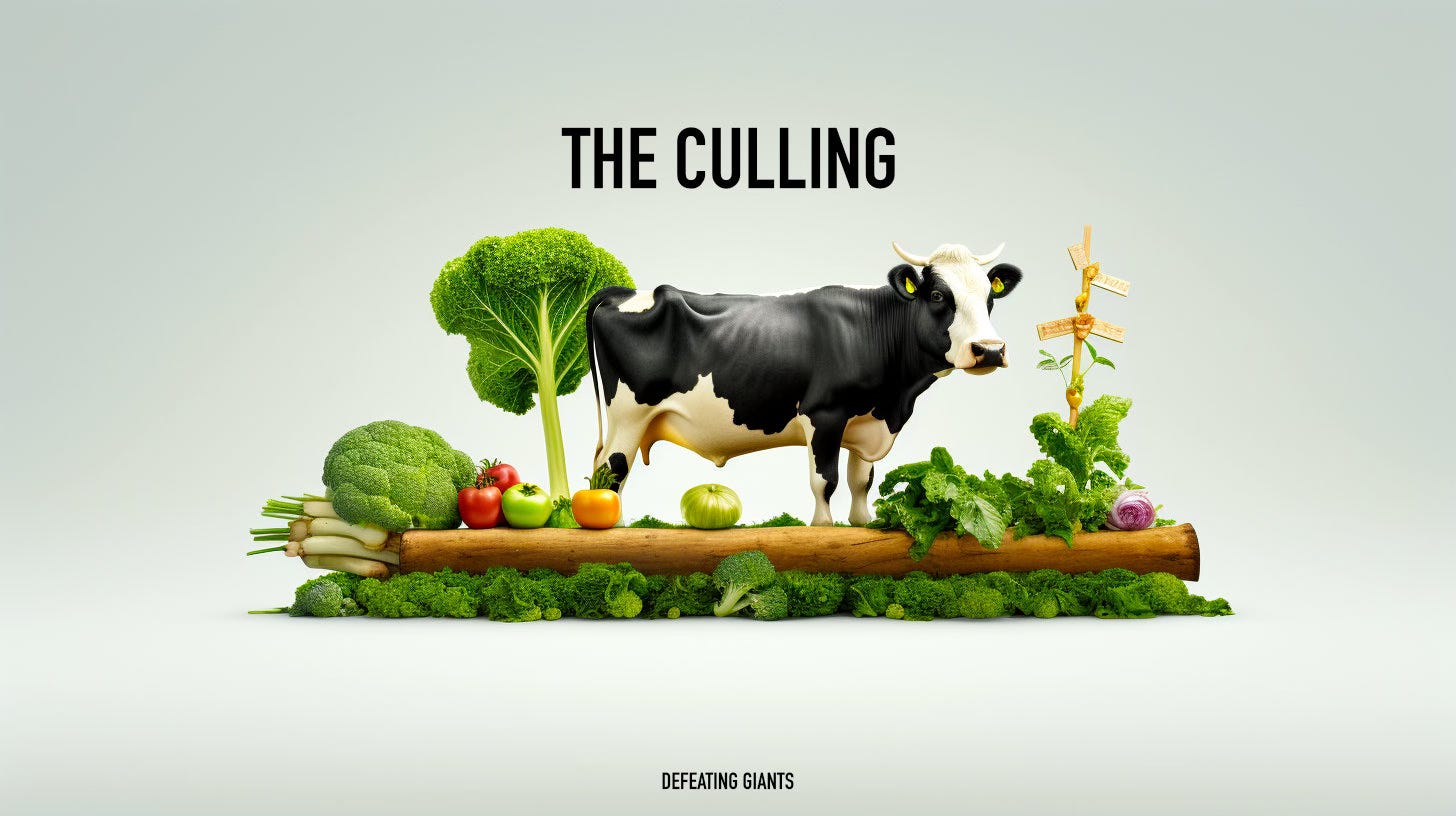
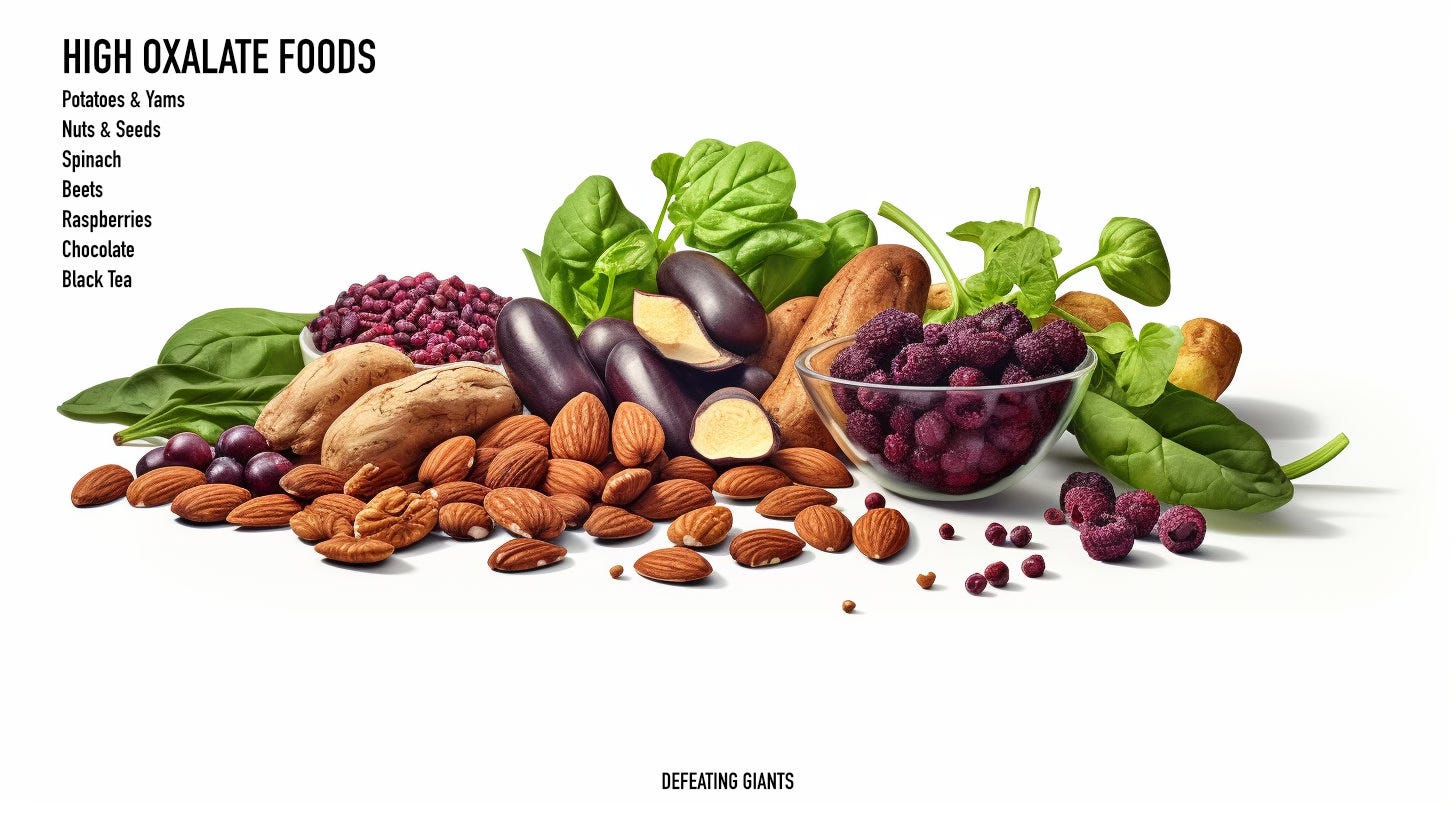
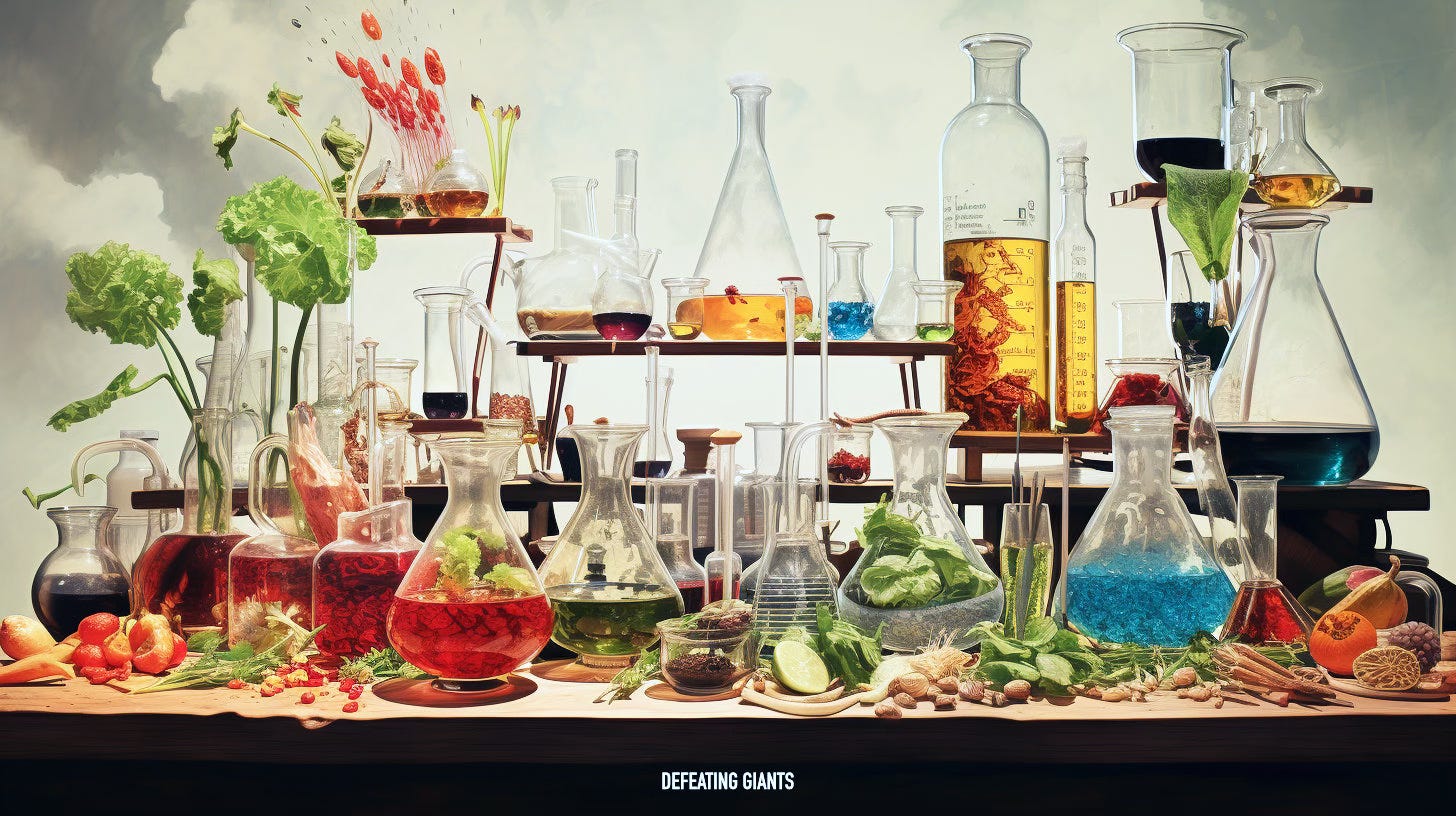
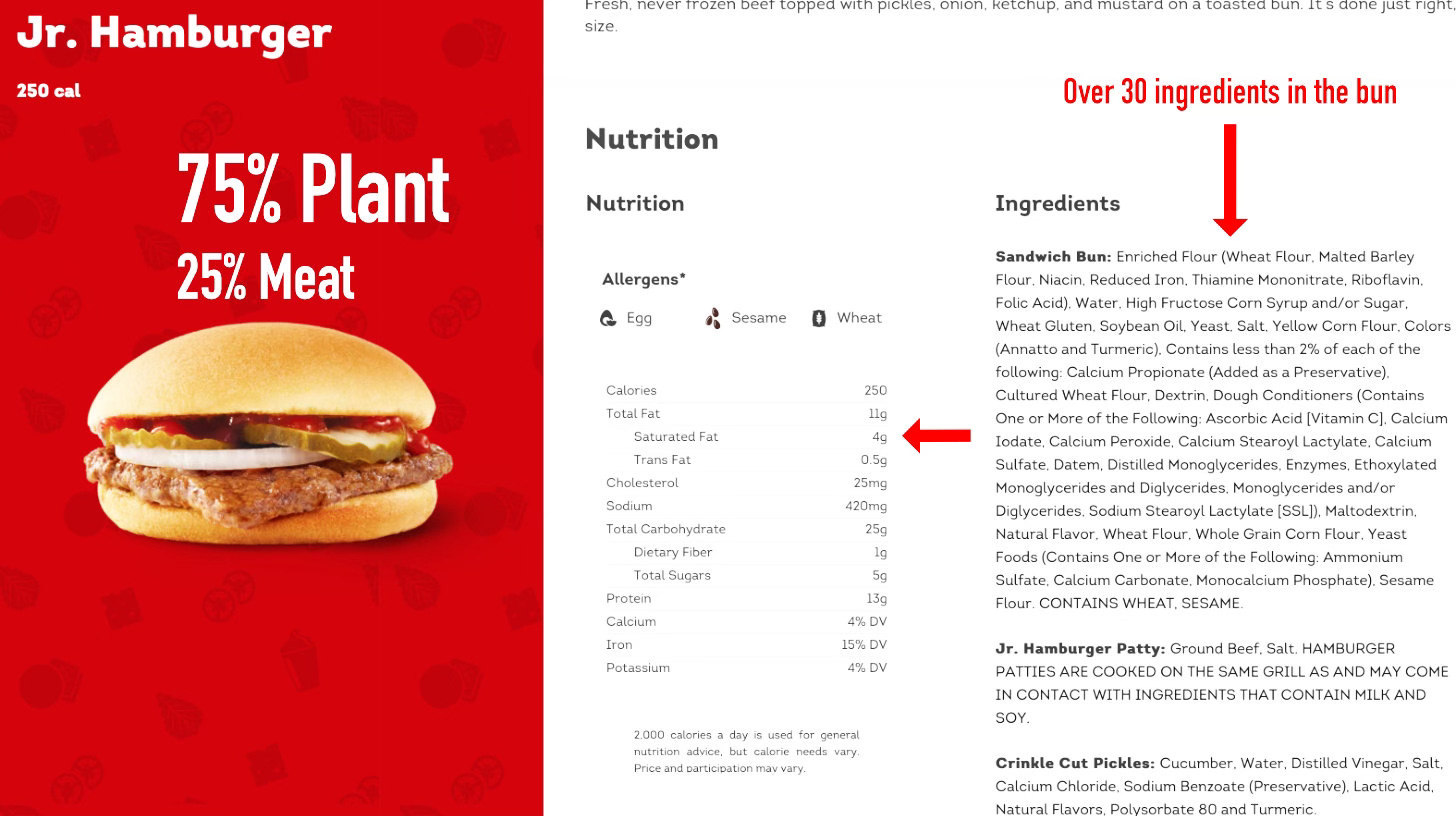


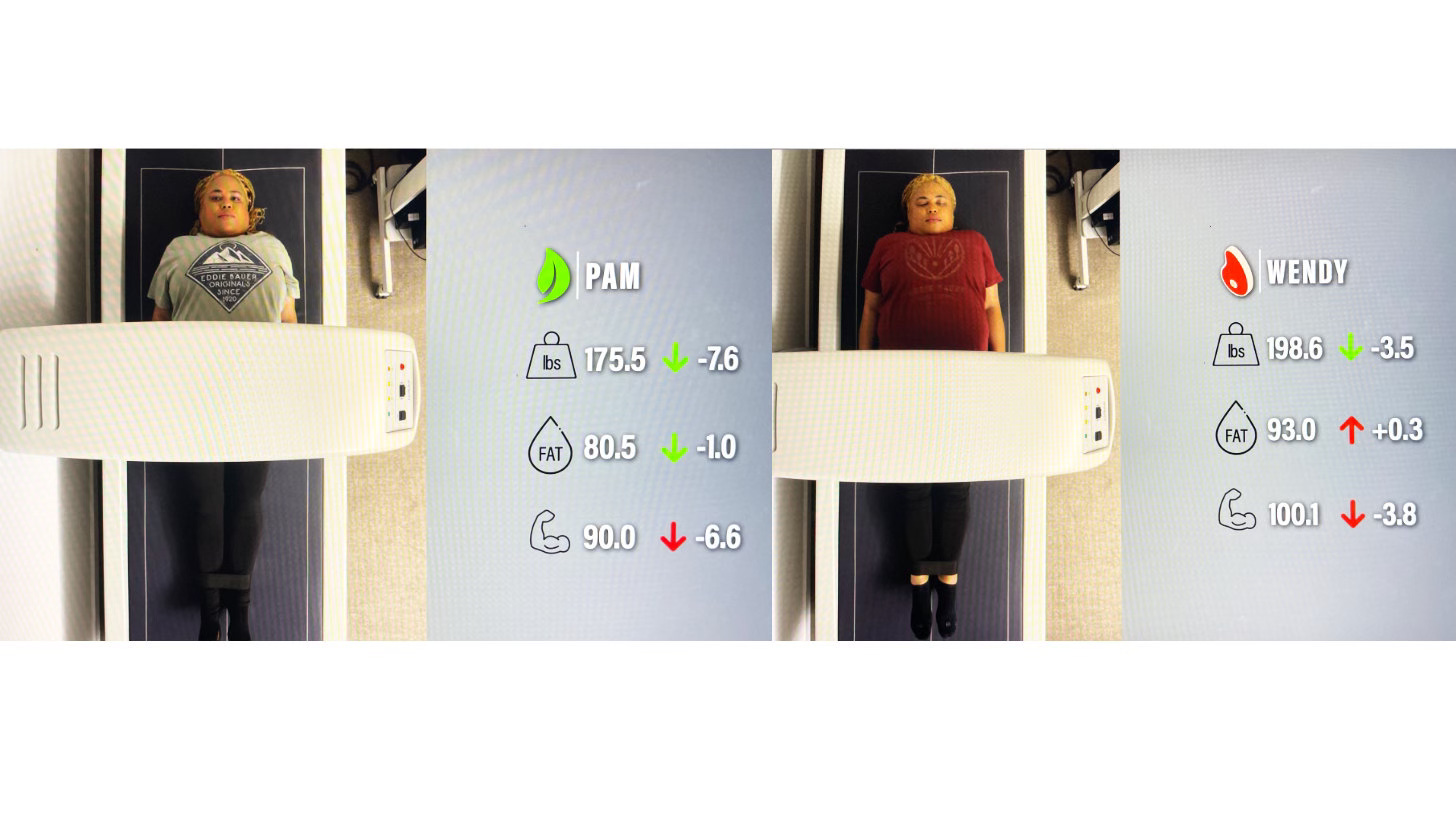
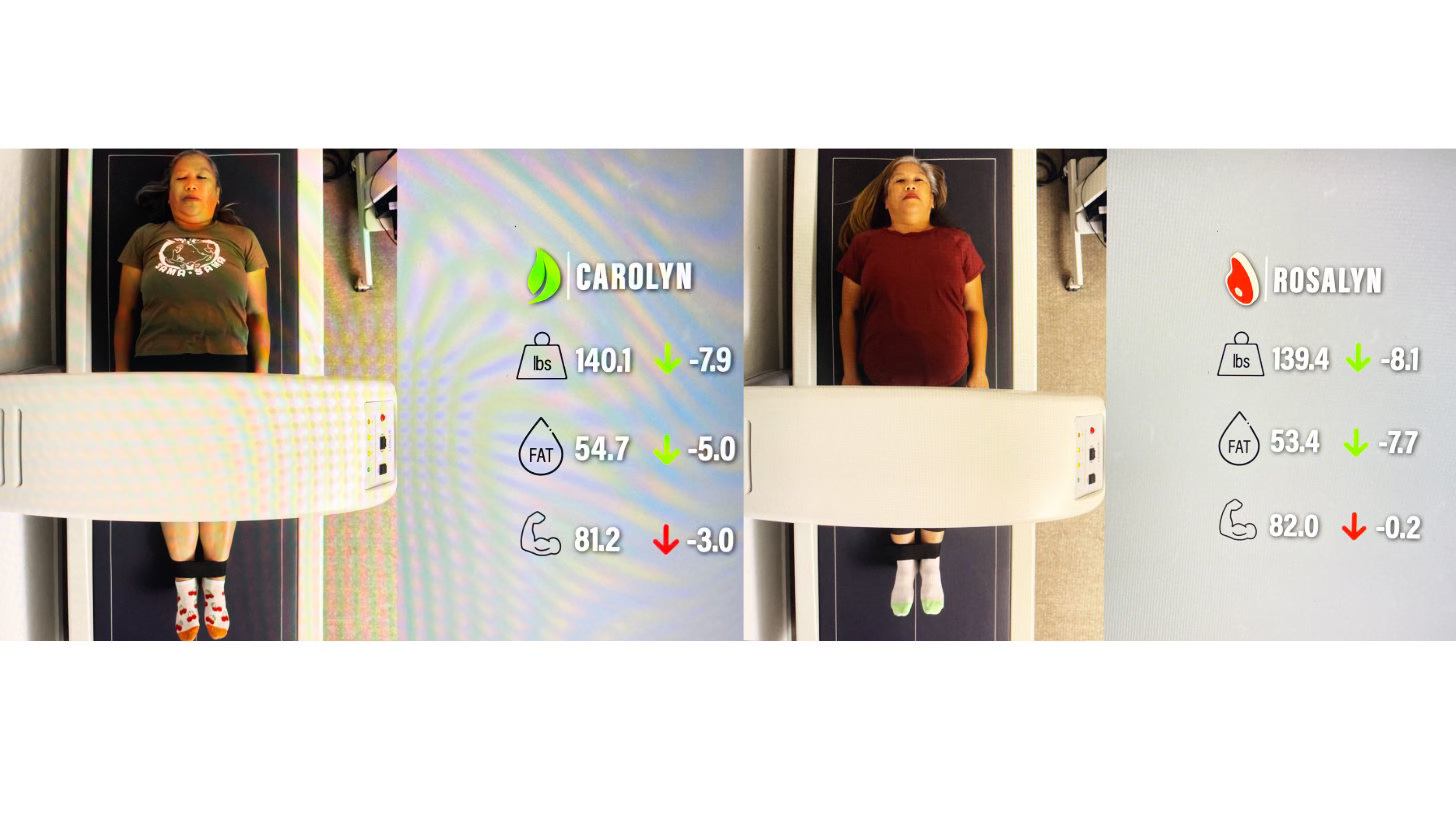
Hi Terrence thank you for your service. Love a lot of the things you shared here. I’m curious if the bio toxins you were exposed to were heavy metals? Have you heard of the heavy metal detox smoothie; spirulina, barley grass juice powder, Atlantic dulse, wild blueberries, cilantro, bananas, orange you might be interested in this hearing your background on exposure while deployed.
Mmm bacon and eggs. With homebaked beans and maple syrup. Yeah Canadian here.
Thanks for your posts! They are informative.